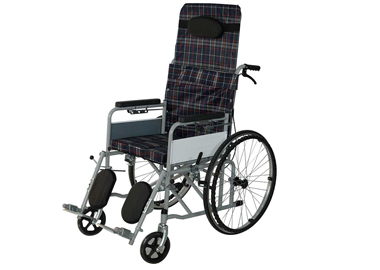Welcome to our websites!
Understanding Medicare Coverage for Electric Wheelchairs and Their Benefits for Users
Understanding Medicare Coverage for Electric Wheelchairs
Navigating the world of healthcare can often feel overwhelming, especially when it comes to understanding insurance coverage. One area that many patients and caregivers have questions about is Medicare coverage for electric wheelchairs. These mobility aids can dramatically improve the quality of life for individuals with limited mobility due to illness, injury, or age-related conditions.
What is Medicare?
Medicare is a federal health insurance program primarily for people aged 65 and older, although it also covers younger individuals with disabilities or certain conditions. The program consists of different parts, with Part A covering hospital insurance and Part B covering outpatient care, including doctor visits and preventive services. Understanding what’s included in these parts is crucial for accessing necessary medical equipment, including electric wheelchairs.
Medicare Coverage for Electric Wheelchairs
Electric wheelchairs, often referred to as power wheelchairs, are durable medical equipment (DME), and Medicare does provide coverage for them under certain conditions. To qualify for coverage, a patient must meet specific criteria defined by Medicare
1. Medical Necessity The primary requirement for Medicare to cover the cost of an electric wheelchair is medical necessity. This means that a healthcare provider must determine that the individual requires a power wheelchair to perform essential daily activities. In most cases, this determination is based on the individual’s mobility needs and their ability to use a manual wheelchair.
2. Consultation with a Doctor Patients must have a face-to-face evaluation by a doctor or another qualified healthcare provider. During this consultation, the doctor will assess the individual’s condition and mobility limitations. If the doctor finds that a power wheelchair is necessary, they will provide a written order, which is essential for the Medicare approval process.
3. Home Use Requirement Medicare typically covers electric wheelchairs primarily for use within the home. Patients must demonstrate that they can safely navigate their living space using the wheelchair and that the device will enhance their ability to live independently.
4. Limited Mobility Patients must demonstrate limited mobility, which may include difficulties moving around their home, standing, or transferring in and out of a chair. This can result from various conditions, including neurological disorders, arthritis, or severe injuries.
medicare covered electric wheelchairs

Getting Approved for Coverage
Once a patient has received a doctor’s order for an electric wheelchair, the next step involves obtaining prior authorization from Medicare. The supplier of the medical equipment will submit the necessary documentation to Medicare for approval. This process may take some time, and it’s crucial to ensure that all medical documents and justifications are correctly provided.
If Medicare approves the request, they will typically cover 80% of the approved amount for the wheelchair after the patient meets their deductible. The remaining 20% is the patient’s responsibility, which can be covered by supplemental insurance or out-of-pocket costs.
Choosing the Right Electric Wheelchair
Choosing the right electric wheelchair is an essential step in the process. Medicare covers a variety of models, and it’s crucial to select one that meets both medical necessities and personal preferences. Factors to consider include
- Size and Weight Capacity Ensure the wheelchair has the appropriate dimensions and weight capacity for the intended user. - Battery Life and Range Evaluate the battery's lifespan and the distances the wheelchair can cover on a single charge. - Features and Accessories Consider additional features such as adjustable seating, armrests, and footrests to enhance comfort and usability.
Conclusion
Electric wheelchairs can greatly enhance the lives of those with mobility issues, allowing for greater independence and improved quality of life. Understanding Medicare's coverage for these devices is essential for patients and caregivers navigating the complexities of healthcare. By knowing the qualifications, necessary steps for approval, and considerations for choosing a wheelchair, individuals can take significant strides toward obtaining the mobility solutions they need.
If you're considering an electric wheelchair and believe you may qualify for Medicare coverage, consult your healthcare provider to discuss your options and begin the process. With the right information and support, you can take the necessary steps to enhance your mobility and independence.
-
Transforming Healthcare with Hospital FurnitureNewsJun.24,2025
-
Rehabilitation EquipmentNewsJun.24,2025
-
Mobility and Independence with WheelchairsNewsJun.24,2025
-
Freedom of Mobility with Our Rollator WalkersNewsJun.24,2025
-
Comfort and Independence with Commode ChairsNewsJun.24,2025
-
Bathing Safety and Independence with Shower ChairsNewsJun.24,2025
-
Navigating the Wholesale Landscape of Electric Mobility Solutions: Key Considerations for Power Wheelchair DealersNewsJun.10,2025











